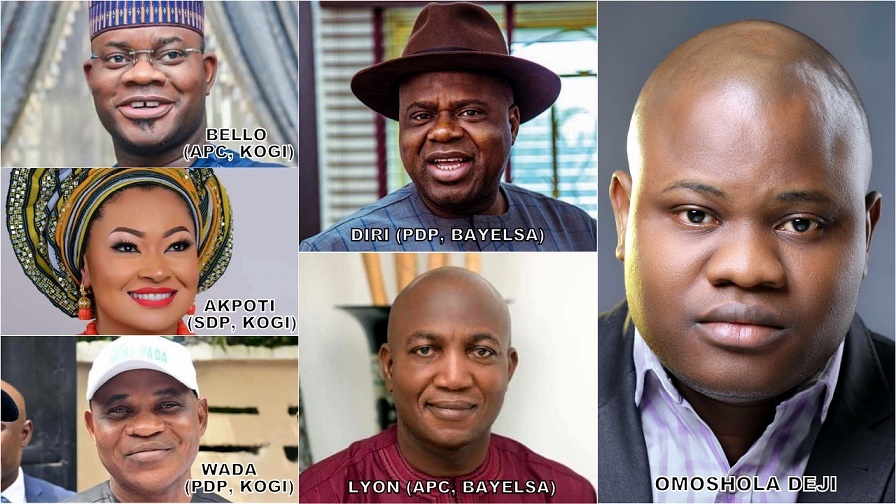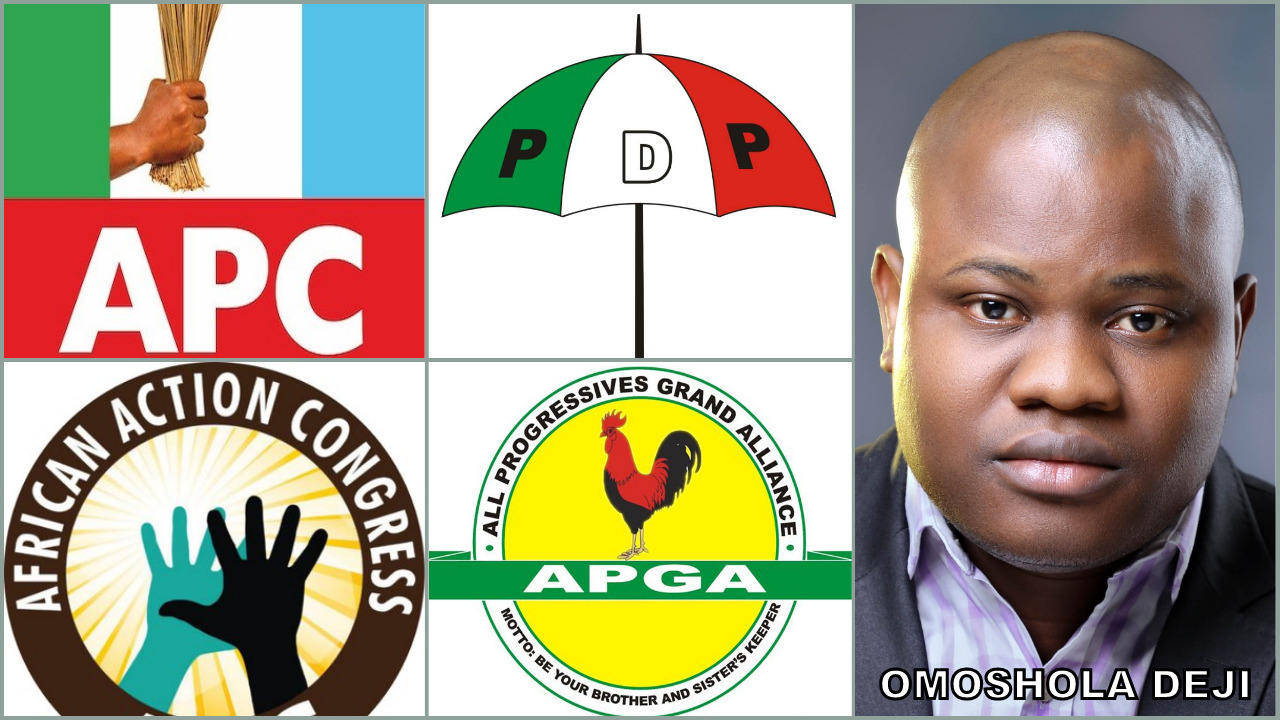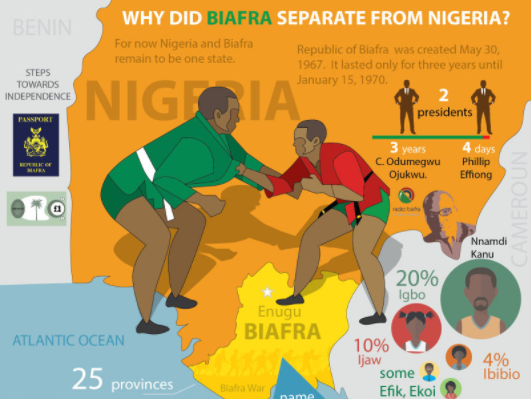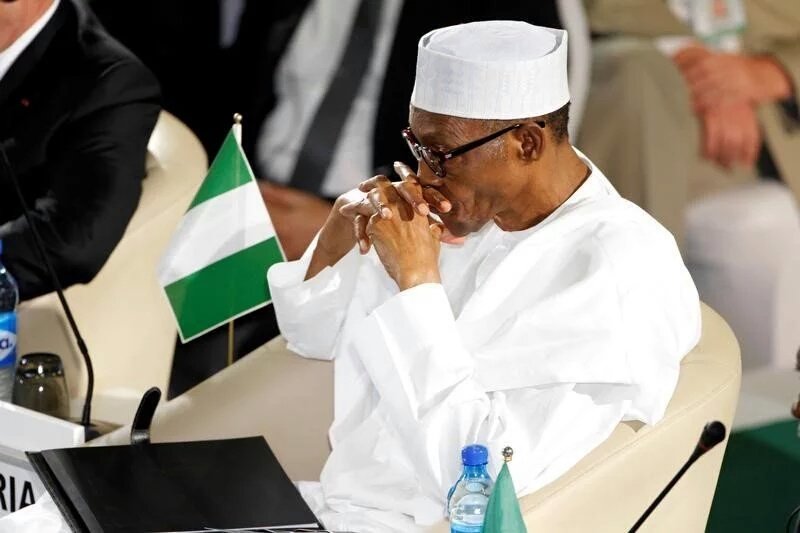Feature/OPED
Buhari and Appointees: The Consequence of Actions
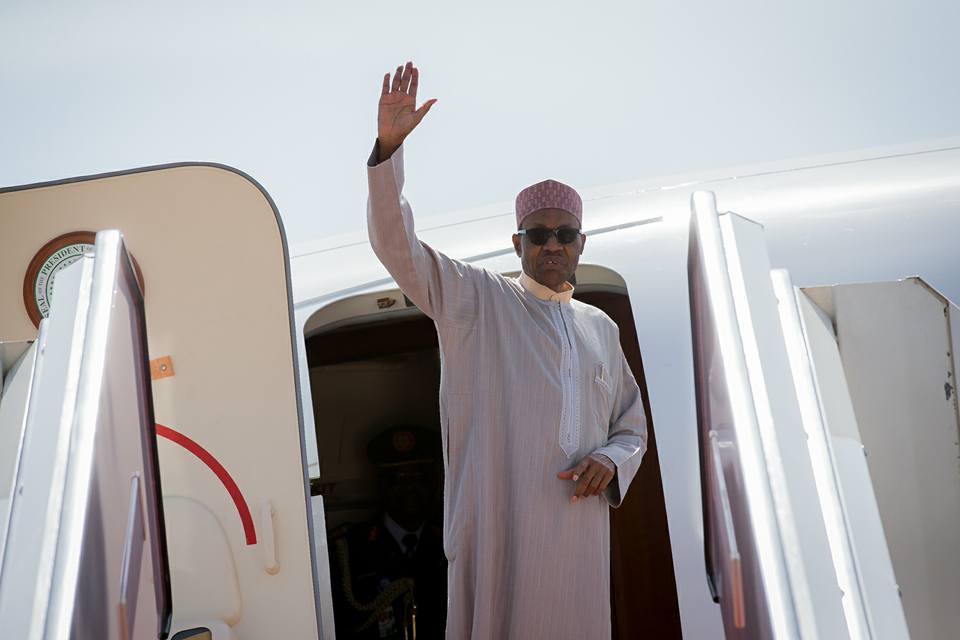
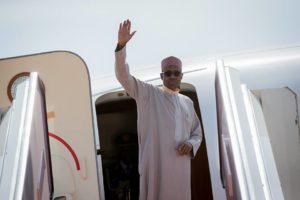
By Omoshola Deji
Just as you and I can’t detach from our bloods because of their imperfections, President Muhammadu Buhari (PMB) has lethargically handled the insubordination and incompetence of his appointees as if their surname is Buhari. Bit by bit, this inertness to discipline is concreting public doubts in PMB’s ability to navigate Nigeria’s sinking ship to the treasure-island of ‘change’.
This piece is of dual significance. First, it fills a crucial lacuna in the Nigerian political analysis. You may have observed that media reports, articles, protest speeches and opinion statements have largely ignored the consequence of Buhari’s appointees’ action on Buhari.
Ad infinitum, the appointees orate their allegiance, while most of their actions have been returning ruins to the president. What are the aftereffects?
Second in significance, this piece transcends politics to mirror our lives. It is a political surgery to unstitch how our actions bring unintended detrimental consequence to our nearest and dearest, even though we genuinely love them and sincerely wished no harm.
Not discounting the need to clarify, appointees connote anyone appointed by PMB. This includes, but not limited to the ministers, security chiefs, ambassadors and the heads of government agencies.
Please endeavour to read this piece as I will be untwisting twists, connecting the-political-dots-of-truth and capping my analysis with a political philosophy on leadership and governance. Don’t miss it!
Piloting Nigeria is herculean and PMB must delegate duties. The four months post-inauguration delay to make crucial appointments infuriated Nigerians as PMB claimed he is scouting for experience, competent, non-corrupt and dedicated persons.
After the long wait, some of his appointees turned out to be people of questionable character and the most vital appointments were allocated to individuals from northern extraction.
Clearly, PMB’s appointees are products of political patronage, political recommendation, personal affiliation and popular commendation.
One of the appointees who fell under PMB’s grace is Ibrahim Magu, the Acting Chairman of the Economic and Financial Crimes Commission (EFCC). However, the Senate’s rejection of Magu as EFCC Chairman validates the existence of an antagonistic cabal in the presidency. Anyone exonerating the presidency and castigating the Senate on Magu is unobserving and soppy. Before heads roll in an anti-corruption focused government, liaising with the national-assembly to confirm the nomination of the EFCC chairman must be first accomplished.
Unfortunately, PMB crushed Magu by allowing him act for too long. During this period, Magu has stepped on some powerful toes in the presidency and has sown the prison garment of some senators, politicians and shady businessmen.
This array of persons considered Magu’s confirmation an abomination. Pathetic, the DSS – an agency under PMB – helped the Senate nail Magu by submitting and resubmitting damning reports against him, even when PMB have cleared him of the corruption allegations.
Please bear in mind that a mutinous act is weighty enough to award you an instant execution under Kim Jong-un of North-Korea.
Regardless of the DSS intents and purposes, their mutiny immensely diminished PMB’s reputation to the lowest low and further affirmed Aisha’s (wife of the president) outburst that her husband’s government has been hijacked by the principal officers and outsiders.
To salvage the situation, Nigerians clamoured that PMB should dig up the roots of conspiracy and insubordination by sacking those culpable or at least make some restructuring.
Sullenly, the president has been out of earshot and his actions lethargic. The consequence of this is for Nigerians to label him weak, incompetent and indecisive.
Without a doubt, the supremacy battle between the Senate and the Nigerian Customs Comptroller-General, Hameed Ali, is one out of the many issues straining the executive’s relationship with the legislature, especially the Senate.
The face-off began when Ali proposed a nationwide clampdown on automobiles that have evaded the payment of customs duty. Ali was appointed to head Customs in 2015. Grading two years, Ali’s accomplishment is remarkable, but the retired military colonel refused to wear the Customs uniform, being the outfit of a para-military agency.
The Senate roared and insisted Ali must appear before her in uniform. Vast in ability but limited in capacity, it is ultra-vires for me to decide the legality or illegality of Ali’s choice of outfit. Be that as it may, I have a testimony!
I appreciated Ali’s handling of Customs when I met a Nigerian business man abroad. The man, from Northern extraction, had a personal relationship with Ali and proved this by showing me photos they took together.
To my surprise, the man complained bitterly about how the uncompromising nature of Ali is affecting his profit. The man had sought Ali’s intervention for a reduction in customs duty, but Ali turned down his request and insisted that appropriate duty be paid. Based on this testimony with proof, Ali won my admiration instantly! However, the planned clampdown on automobiles made Ali lose a bit of my admiration.
Acting arrogant and that his inappropriate actions could set people against the government made Ali lose my admiration further. At a time when the president is battling with health issues and struggling to convince Nigeria that he is alive, able and capable to continue as president, what is needed is not an anti-masses policy that will frustrate the anger of the citizens. Ali failed to study national mood. Recall that GEJ and PMB removed fuel subsidy, but the nationwide reaction was different. At a time when recession is biting hard on the populace, food prices skyrocketing, Naira depreciating and businesses collapsing, one of the easiest ways to get people revolt against the government is the implementation of an obnoxious auto clampdown policy. Again, Ali, an appointee, carelessly fails to consider the consequence of his action on PMB.
Another worthy instance is when the Minister of Transport, Rotimi Amaechi, tried to halt the take-off of the Nigerian Maritime University (NMU) in Okerenkoko, Delta State.
In a region where the nation generates her main income and the populace are hostile to government, Amaechi should not be igniting fire, but doing all he can to increase affection for PMB and creating a political soft-landing for APC in 2019.
If not for the wisdom of the Minister of State for Petroleum, Ibe Kachukwu, who immediately declared support for the NMU project, Ameachi had unintentionally, but successfully fertilized animosity between PMB and the Niger-Delta. Hostility triggering acts does not end with Amaechi.
Under a president that relegated ethnics and others trying to secede have tagged ethnocentric, the Inspector General of Police, Ibrahim Idris, failed to negate the arrest of only Yoruba natives after the Ile-Ife clash between the Yoruba and the Hausa-Fulani.
In truth, no one would have clamoured if more Yoruba’s were arrested, but to exonerate the Hausa-Fulani’s and attempt to prosecute only the Yoruba’s is one of the best ways to declare PMB persona-non-grata in the Southwest.
The Southeast and South-south are largely not admirers of PMB. If the Southwest also becomes hostile, what will be the fate of PMB’s political fortune or that of his anointed successor?
Palpably, many lives and properties would have been saved if the police handling of the Ile-Ife crisis is replicated in Southern Kaduna and Benue. Are the Fulani herdsmen under immunity? Why didn’t they carry out their black acts when PMB was on medical vacation abroad?
Indeed, salt spilled on injury when PMB’s men, Abba Kyari and Babachir Lawal, ignored consequence and got themselves embroiled in the MTN bribe and invasive-plant-species corruption scandals respectively.
Also, Professor Sagay would not consider the implication of making uncouth statements on PMB’s relationship with the Senate. That’s not enough! Sagay would further display confidence by tongue-lashing anyone who dares to caution him, including the ruling All Progressives congress (APC). A right man with the wrong team, PMB’s main problem is his appointees.
Discipleship also worsens the situation. Rather than utilize their talents in the Gulder Ultimate Search, the Buhari fanatics have embarked on a no-reward mission trying to find justifications for why an ex-military head coddles insubordination and incompetence, especially when it erodes his reputation, support and political strength.
It is sad that most Nigerians are yet to rise above ethno-religious and political sentiments. Unfortunately, most of these sentimental souls are the ones in dire need of PMB’s ‘change’. My support for PMB is indeed conditional. It is conditioned on him conditioning an equitable, developed and secured Nigeria. Let’s connect the political dots-of-truth.
If you are a devotee of Buharism – ardent supporters of anything Buhari – you are a genuine ‘change’ disciple if you not only applaud PMB’s strides, but also rise above sentiments to embrace steps that will make him perfect his imperfections.
Deceive yourself no further! If you are not part of PMB’s immediate family, all you can benefit from is a better Nigeria.
To those who never want to hear “Bu” not to talk of “Hari”, whether you like it or not, so long as you are a Nigerian, Buhari is your president, at least till 2019. Therefore, if your paramount interest is a better Nigeria, you need sheathe your sword and support anything that will ensure PMB succeeds in fixing Nigeria.
To the opposition parties, adopting calumny tactics to destabilize government is also to your disadvantage. You surely wish to take over something meaningful. You want to consolidate something, not nothing!
To PMB, this is a wake-up call to perfect his imperfections and be cautious of his place in history. Does history matter at all? Why must PMB not allow the insubordination, incompetence and shenanigans of his appointees ruin his administration? Let’s explore this simple interpretation of an ancient political philosophy on leadership and governance (read slowly to grasp).
Who builds the society? History books have the names of Kings as the ones who built the society. Are the Kings really the ones that built the society? The Kings were not seen ‘carrying bricks’ to build the socieeetyyyy! The King’s slaves and aides were the ones who carried bricks, toiling day and night, in the rain and sunshine, to build the society. Why should the history books not be filled with the names of this real builder of the society?
No! The history books can’t have any name except that of the Kings. The King’s initiated the vision on how to best build the society. This vision was only executed by the King’s tool – the slaves and aides. When the society was being built, the Kings were not sleeeeeping or making meeeeerrrry! They ordered and oversaw the building of the society. The Kings’ proper utilization of their tools led to the success of the building of the society. If the building of the society had failed, the history books would document no one as a failure other than the Kings.
Omoshola Deji is a political and public affairs analyst. He wrote in via mo******@***oo.com
Feature/OPED
Daniel Koussou Highlights Self-Awareness as Key to Business Success

By Adedapo Adesanya
At a time when young entrepreneurs are reshaping global industries—including the traditionally capital-intensive oil and gas sector—Ambassador Daniel Koussou has emerged as a compelling example of how resilience, strategic foresight, and disciplined execution can transform modest beginnings into a thriving business conglomerate.
Koussou, who is the chairman of the Nigeria Chapter of the International Human Rights Observatory-Africa (IHRO-Africa), currently heads the Committee on Economic Diplomacy, Trade and Investment for the forum’s Nigeria chapter. He is one of the young entrepreneurs instilling a culture of nation-building and leadership dynamics that are key to the nation’s transformation in the new millennium.
The entrepreneurial landscape in Nigeria is rapidly evolving, with leaders like Koussou paving the way for innovation and growth, and changing the face of the global business climate. Being enthusiastic about entrepreneurship, Koussou notes that “the best thing that can happen to any entrepreneur is to start chasing their dreams as early as possible. One of the first things I realised in life is self-awareness. If you want to connect the dots, you must start early and know your purpose.”
Successful business people are passionate about their business and stubbornly driven to succeed. Koussou stresses the importance of persistence and resilience. He says he realised early that he had a ‘calling’ and pursued it with all his strength, “working long weekends and into the night, giving up all but necessary expenditures, and pressing on through severe setbacks.”
However, he clarifies that what accounted for an early success is not just tenacity but also the ability to adapt, to recognise and respond to rapidly changing markets and unexpected events.
Ambassador Koussou is the CEO of Dau-O GIK Oil and Gas Limited, an indigenous oil and natural gas company with a global outlook, delivering solutions that power industries, strengthen communities, and fuel progress. The firm’s operations span exploration, production, refining, and distribution.
Recognising the value of strategic alliances, Koussou partners with business like-minds, a move that significantly bolsters Dau-O GIK’s credibility and capacity in the oil industry. This partnership exemplifies the importance of building strong networks and collaborations.
The astute businessman, who was recently nominated by the African Union’s Agenda 2063 as AU Special Envoy on Oil and Gas (Continental), admonishes young entrepreneurs to be disciplined and firm in their decision-making, a quality he attributed to his success as a player in the oil and gas sector. By embracing opportunities, building strong partnerships, and maintaining a commitment to excellence, Koussou has not only achieved personal success but has also set a benchmark for future generations of African entrepreneurs.
His journey serves as a powerful reminder that with determination and vision, success is within reach.
Feature/OPED
Pension for Informal Workers Nigeria: Bridging the Pension Gap

***The Case for Informal Sector Pensions in Nigeria
***A Crucial National Conversation
By Timi Olubiyi, PhD
In Nigeria today, the phrase “pension” evokes many different mixed reactions. For many civil servants and people in the corporate world, it conjures a bit of hope, but for the majority in the informal sector, who are in the majority in Nigeria, it is bleak. Millions of Nigerians are facing old age without any financial security due to a lack of retirement plans and a stable pension plan. Particularly, the millions who operate in markets, corner shops, transportation, agriculture, and loads of the nano and micro scale enterprises operators are without pension plans or retirement hope.
From the observation of the author and available records, staggering around 90 per cent of Nigeria’s workforce operates in the informal economy. Yet current pension coverage for this group is virtually non-existent. As observed, the absence of meaningful pension participation by this class of worker reinforces the vulnerability, intensifies poverty among older people, and puts pressure on families who are ill-equipped to shoulder the burden.
The significance of having a pension plan for informal workers in Nigeria, given the large number of people in that sector and the high level of unemployment and underemployment, cannot be overstated. As it is deeply connected to sustenance and the level of poverty in the country. Pension for informal workers in Nigeria is not just a technical policy matter; it is a story about dignity, security, and whether a lifetime of hard work ends in rest or in desperation.
Nigeria’s pension system, primarily structured around the Contributory Pension Scheme (CPS) managed by the National Pension Commission (PenCom), has made significant progress for formal sector employees, yet the large portion of the informal workforce which are traders, artisans, okada riders, small-scale farmers, domestic workers, and gig economy participants who drive the real engine of the economy.
Though the Micro Pension Plan (MPP) was launched in 2019, which is intended to provide a voluntary contributory framework for informal workers, its uptake has been underwhelming; after several years, only a fraction of the millions targeted have enrolled, and far fewer contribute actively. One big reason for this is that, unlike formal workers who receive regular salaries and have employers who deduct and remit pension contributions, informal workers face irregular incomes, a lack of documentation, limited financial literacy, and deep mistrust of government institutions, making traditional pension models ill-suited for their realities.
Moreso the informal worker most times live on day-to-day income. For instance, a motorcycle rider in Lagos who earns ₦14,000 on a good day but must pay for fuel, bike maintenance, police “settlements,” and family expenses, how can he realistically commit to a monthly pension contribution when his income fluctuates wildly? So, the Micro Pension Plan for the informal sector participation will remain low due to poor awareness, complex processes, lack of tailored contribution flexibility, and limited trust.
To truly make pensions work for informal workers, Nigeria must rethink the system from the ground up, designing it around the lived realities of its people rather than forcing them into rigid formal-sector structures. First, the government should introduce a co-contributory model where the state matches a percentage of informal workers’ savings, similar to what is practised in some European countries, turning pension contributions into a powerful incentive rather than a burdensome obligation.
Second, digital technology must be leveraged aggressively—mobile-based pension platforms linked to BVN or NIN could allow daily, weekly, or micro-contributions as small as ₦100, integrating seamlessly with fintech apps like OPay, Paga, or bank USSD services so that saving becomes as easy as buying airtime.
Third, automatic enrollment through cooperatives, trade unions, market associations, and transport unions could significantly expand coverage, with opt-out rather than opt-in mechanisms to counter human inertia.
Fourth, financial literacy campaigns in local languages via radio, community leaders, and religious institutions are essential to rebuild trust and demonstrate that pensions are not a “government scam” but a personal safety net.
Fifth, Nigeria should consider a universal social pension for elderly citizens who never participated in formal or informal schemes, modelled after systems in countries like Denmark and the Netherlands, ensuring that no Nigerian dies in poverty simply because they worked outside formal structures.
Sixth, investment strategies for pension funds must prioritise both security and development—allocating a portion to infrastructure projects that create jobs, improve power supply, and stimulate economic growth while maintaining prudent risk management.
Seventh, inflation protection should be built into pension payouts so that retirees’ purchasing power is not eroded by Nigeria’s volatile economy.
Eighth, the system must be inclusive of women, who dominate the informal sector yet often lack property rights or formal identification, by simplifying documentation requirements and providing gender-sensitive outreach.
Ninth, limited emergency withdrawal options could be introduced—strictly regulated—to help contributors handle crises without abandoning the system entirely.
Finally, transparency and accountability are non-negotiable; regular public reporting, independent audits, and user-friendly dashboards would strengthen confidence that contributions are safe and growing. If Nigeria can blend its innovative spirit with lessons from global best practices—combining Denmark’s social security ethos, Singapore’s savings discipline, and Canada’s inclusivity—it could transform the lives of millions of informal workers who currently face retirement with fear rather than hope.
Imagine Aisha, years from now, closing her market stall not in exhaustion and anxiety but in calm assurance that her pension will cover her basic needs; imagine Tunde hanging up his helmet knowing he can afford healthcare and shelter; imagine Ngozi harvesting not just crops but the fruits of a lifetime of secure savings. The suspense that hangs over the future of Nigeria’s informal workers can be resolved, but only if policymakers act boldly, creatively, and compassionately—because a nation that allows its hardest workers to age in poverty is a nation that undermines its own prosperity, while a nation that secures their retirement builds not just pensions, but peace.
Hope comes from innovation. Fintech-powered pension models that allow small, frequent contributions similar to informal savings associations like esusu offer ways to integrate pensions into existing savings cultures. Making pension contributions compatible with mobile money and agent networks could drastically reduce barriers to entry. Hope comes from public education. Building financial literacy campaigns, partnering with community leaders, marketplaces, trade associations, and digital platforms can help shift perceptions. A pension should be understood not as a distant bureaucratic programme, but as future self-insurance and dignity
The significance of having a pension plan for informal workers in Nigeria, given its large informal sector and high level of unemployment and underemployment, cannot be overstated, as it is deeply connected to social stability, economic sustainability, poverty reduction, and national development.
First, from a social protection and human dignity perspective, a pension plan for informal workers is critical because it provides a safety net for old age. Nigeria’s informal sector includes traders, artisans, mechanics, tailors, hairdressers, okada riders, gig workers, domestic workers, small-scale farmers, and street vendors, many of whom work hard throughout their lives but have no formal retirement benefits. Without a pension, these individuals often become completely dependent on their children, relatives, or charity in old age, which can strain families and increase intergenerational poverty. A well-structured pension system ensures that ageing informal workers can maintain a basic standard of living, access healthcare, and avoid extreme deprivation, thereby preserving their dignity and reducing elderly vulnerability.
Second, from an economic stability and poverty reduction standpoint, pensions play a crucial role in reducing old-age poverty. Nigeria already struggles with high poverty levels, and a large proportion of elderly citizens without income support exacerbates this problem. When informal workers lack pension savings, they continue working well into old age, often in physically demanding jobs, which reduces productivity and increases health risks. A pension system allows for smoother retirement transitions, reduces reliance on welfare, and ensures that older citizens remain consumers rather than economic burdens, thereby sustaining economic activity.
Third, pensions for informal workers are significant for financial inclusion and savings culture. Many Nigerians in the informal sector operate primarily in cash and have limited engagement with formal financial institutions. A pension plan tailored to informal workers, especially one integrated with mobile money and digital platforms, can encourage regular saving, improve financial literacy, and bring millions of people into the formal financial system. This, in turn, strengthens Nigeria’s overall financial sector and increases the pool of domestic savings available for investment in infrastructure, businesses, and development projects.
Fourth, the significance is evident in reducing dependence on government emergency support. Currently, the Nigerian government often has to intervene with ad-hoc social assistance programs, especially during crises such as the COVID-19 pandemic, inflation shocks, or economic downturns. If informal workers had functional pension savings, they would be better able to absorb economic shocks in retirement without relying heavily on government aid, reducing fiscal pressure on the state.
Fifth, pensions for informal workers contribute to intergenerational equity and family stability. In Nigeria, many elderly parents depend on their working children for survival, which places financial strain on younger generations who may already be struggling with unemployment, housing costs, and education expenses. A pension system reduces this burden, allowing younger Nigerians to invest in their own futures rather than being trapped in a cycle of supporting ageing relatives without external assistance.
Sixth, from a national development perspective, including informal workers in the pension system strengthens Nigeria’s long-term economic planning. Pension funds represent large pools of capital that can be invested in critical sectors such as housing, energy, transportation, and manufacturing. If millions of informal workers contribute even in small amounts, this could significantly expand Nigeria’s pension fund assets, providing stable, long-term financing for development projects that create jobs and stimulate growth.
Seventh, pensions for informal workers are important for gender equity, because women dominate many informal occupations in Nigeria, such as petty trading, market vending, tailoring, and caregiving roles. These women often have lower lifetime earnings, limited access to formal employment, and fewer assets. A targeted informal sector pension scheme can protect elderly women from destitution and reduce gender-based economic inequality in old age.
Eighth, the significance is also linked to public trust and governance. A transparent, accessible, and reliable pension system for informal workers can strengthen citizens’ trust in government institutions. Many informal workers currently distrust government programs due to past corruption, failed schemes, or poor implementation. A well-functioning pension plan that delivers real benefits would demonstrate that the state values all citizens, not just formal sector employees.
Lastly, given Nigeria’s demographic reality of a large and growing population, failing to integrate informal workers into a pension framework poses serious long-term risks. As life expectancy increases, the number of elderly Nigerians will rise significantly in the coming decades. Without a structured pension system for informal workers, Nigeria could face a severe old-age crisis characterised by mass poverty, social unrest, and increased pressure on healthcare and social services.
In summary, having a pension plan for informal workers in Nigeria is significant because it promotes social security, reduces poverty, enhances financial inclusion, supports economic stability, eases intergenerational burdens, strengthens national development, promotes gender equity, builds public trust, and prepares the country for its ageing population. For a nation where the majority of workers are informal, excluding them from pension coverage is not just an oversight; it is a major structural weakness that must be urgently addressed for Nigeria’s long-term prosperity and social cohesion.
Feature/OPED
Revived Argungu International Fishing Festival Shines as Access Bank Backs Culture, Tourism Growth

The successful hosting of the 2026 Argungu International Fishing Festival has spotlighted the growing impact of strategic public-private partnerships, with Access Bank and Kebbi State jointly reinforcing efforts to promote cultural heritage, tourism development, and local economic growth following the globally attended celebration in Argungu.
At the grand finale, Special Guest of Honour, Mr Bola Tinubu, praised the festival’s enduring national significance, describing it as a powerful expression of unity, resilience, and peaceful coexistence.
“This festival represents a remarkable history and remains a powerful symbol of unity, resilience, and peaceful coexistence among Nigerians. It reflects the richness of our culture, the strength of our traditions, and the opportunities that lie in harnessing our natural resources for national development. The organisation, security arrangements, and outlook demonstrate what is possible when leadership is purposeful and inclusive.”
State authorities noted that renewed institutional backing has strengthened the festival’s global appeal and positioned it once again as a major tourism and cultural platform capable of attracting international visitors and investors.
“Argungu has always been an iconic international event that drew visitors from across the world. With renewed partnerships and stronger institutional support, we are confident it will return to that global stage and expand opportunities for our people through tourism, culture, and enterprise.”
Speaking on behalf of Access Bank, Executive Director, Commercial Banking Division, Hadiza Ambursa, emphasised the institution’s long-standing commitment to supporting initiatives that preserve heritage and create economic opportunities.
“We actively support cultural development through initiatives like this festival and collaborations such as our partnership with the National Theatre to promote Nigerian arts and heritage. Across states, especially within the public sector space where we do quite a lot, we work with governments on priorities that matter to them. Tourism holds enormous potential, and while we have supported several hotels with expansion financing, we remain open to working with partners interested in developing the sector further.”
Reports from the News Agency of Nigeria indicated that more than 50,000 fishermen entered the historic Matan Fada River during the competition. The overall winner, Abubakar Usman from Maiyama Local Government Area, secured victory with a 59-kilogram catch, earning vehicles donated by Sokoto State and a cash prize. Other top contestants from Argungu and Jega also received vehicles, motorcycles and monetary rewards, including sponsorship support from WACOT Rice Limited.
Recognised by UNESCO as an Intangible Cultural Heritage of Humanity, the festival blends traditional fishing contests with boat regattas, durbar processions, performances, and international competitions, drawing visitors from across Nigeria and beyond.
With the 2026 edition concluded successfully, stakeholders say the strengthened collaboration between government and private-sector partners signals a renewed era for Argungu as a flagship cultural tourism destination capable of driving inclusive growth, preserving tradition, and projecting Nigeria’s heritage on the world stage.
-

 Feature/OPED6 years ago
Feature/OPED6 years agoDavos was Different this year
-
Travel/Tourism10 years ago
Lagos Seals Western Lodge Hotel In Ikorodu
-

 Showbiz3 years ago
Showbiz3 years agoEstranged Lover Releases Videos of Empress Njamah Bathing
-

 Banking8 years ago
Banking8 years agoSort Codes of GTBank Branches in Nigeria
-

 Economy3 years ago
Economy3 years agoSubsidy Removal: CNG at N130 Per Litre Cheaper Than Petrol—IPMAN
-

 Banking3 years ago
Banking3 years agoSort Codes of UBA Branches in Nigeria
-

 Banking3 years ago
Banking3 years agoFirst Bank Announces Planned Downtime
-

 Sports3 years ago
Sports3 years agoHighest Paid Nigerian Footballer – How Much Do Nigerian Footballers Earn


